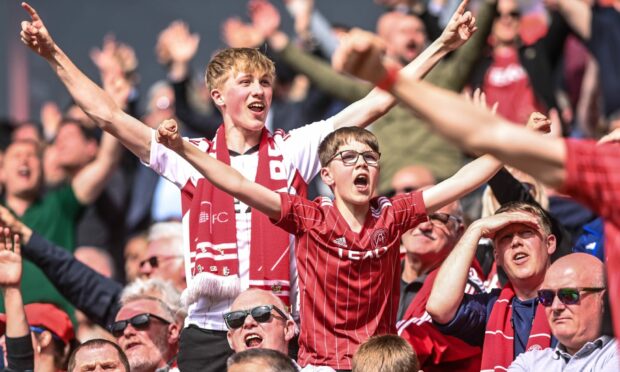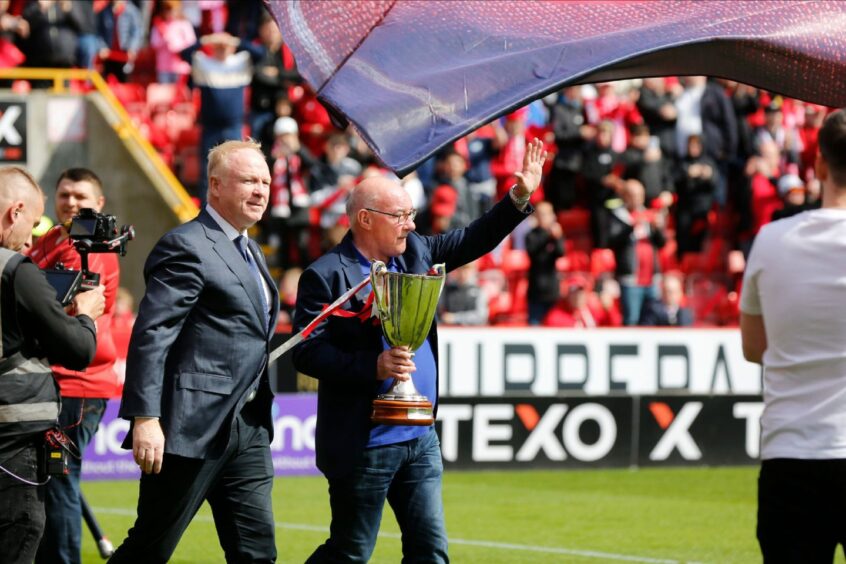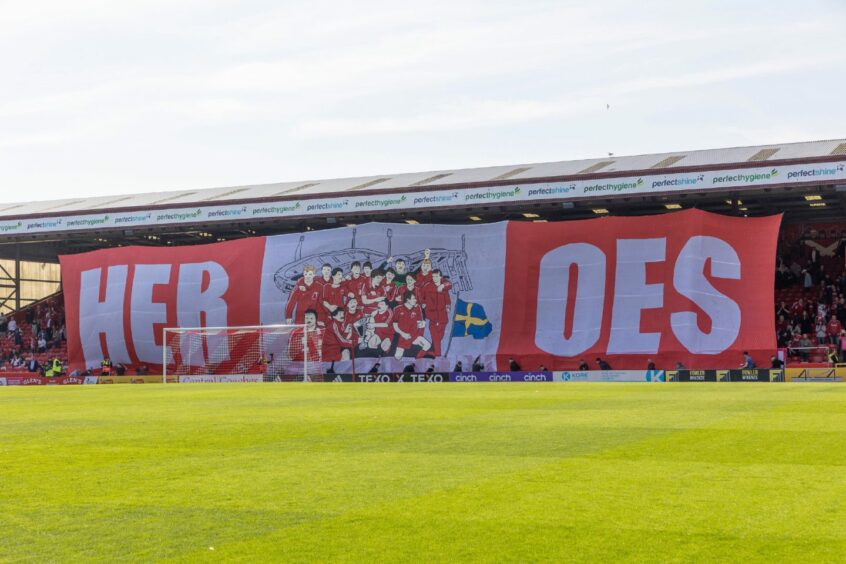When you mention the Bayern Munich game at Pittodrie, some younger Aberdeen fans may momentarily think of Josh Walker, Sone Aluko and a memorable 2-2 draw in 2008.
For those who weren’t around at the time of Aberdeen’s greatest moment in 1983, the thought of the Dons scaling such dizzying heights can be hard to fathom.
The past week’s celebrations of the 40th anniversary of the Dons’ European Cup Winners’ Cup success will have helped bring some fresh perspective of a well-told story to the younger section of the Red Army.
For Aberdeen to defeat the mighty Bayern Munich and Real Madrid on their way to lifting a major European trophy is the type of footballing fairytale a father might tell his young child while putting them to bed.
But this actually happened.
It was right to mark the milestone in an appropriate manner and the city and the Dons deserve enormous credit for a fitting celebration of a wonderful achievement.
It was also heartening to see the Gothenburg Greats reunited and clearly loving every minute of being back together again at their old stomping ground.
They joked and giggled their way through the Freedom of the City ceremony which gave a great insight into what that group would have been like in their heyday.
It was easy to see which of the players would have been the quiet ones in the dressing room and who would have been the chief mischief makers.
Perhaps there would have been a slightly different tone to proceedings had their old boss, Sir Alex Ferguson, been able to attend – although I’m not so sure.
The togetherness of the squad was still clear to see – and this was a very young group of players who achieved greatness in Gothenburg early in their careers.
The sad absence of Neale Cooper appears to have only strengthened that close bond between this unique band of individuals who did something that will not be surpassed in the history of Aberdeen Football Club.
His contribution to the team was rightly remembered and the sight of the ‘Cooper 4’ shirt draped on an empty chair during the ceremony was a poignant and touching moment.
The emotion felt by Dougie Bell when he finally received his medal was also evident.
The midfielder played a pivotal role in helping the Dons to the final only to miss out on Gothenburg due to injury.
It is likely many day didn’t go by without Dougie contemplating how different things could have been if a broken ankle hadn’t robbed him of the biggest game of his career.
But the medal may underline to him the importance he played in turning a dream into a reality for the cup was not just won in Gothenburg but on all of those ties on the way to the final.
There is a perception that such a gigantic and incredible triumph has acted as a millstone around the necks of current Aberdeen squads.
This was undoubtedly true in the years that followed Ferguson’s departure from Pittodrie as well as in the difficult stretch in the 1990s when the Dons flirted dangerously with relegation from the top flight.
But 40 years on from Gothenburg, the footballing landscape has changed so dramatically there can be no comparison between 1983 and 2023.
These periods must instead be assessed in their own contexts – in a world before and after television money changed football so enormously.
The glory in Gothenburg should act as an inspiration to the current and future Dons teams of what can be achieved through hard work, self-belief and unity.



Conversation